Brakes are perhaps one of the most important components of your vehicle. They also have a few questions surrounding them. What happens when you push the brakes? How long do brakes last? How do you know when you need new brakes?
What Happens When You Brake
Your vehicle’s brakes are most likely found on the front two tires of your car (with exception of weighted trucks which can have rear brakes). They are made of three components:
- Rotors: circular piece attached to the back of the wheel.
- Calibers: vice like clamps that engage with the rotors to slow down the vehicle.
- Brake Pads: in between the rotors and calibers, brake pads create the friction to slow down your vehicle.
While all three components wear over time, your brake pads will wear the fastest and need replacement first.
How Long do Brakes Last?
It varies. Brakes are a wear item, not a mileage item, with the brake pads wearing first. And not all driving is equal. 20,000 miles of driving in Dallas with stop-and-go traffic is not equal to 40,000 miles of highway driving in Kansas. It is important to keep an ear and eye out for signs your brakes are wearing out.
5 Signs You Need New Brakes
With no set replacement date or mileage limit, it is important to familiarize yourself with signs of worn brakes.
- Noises
Screeching, squealing, buzzing, grinding and clicking all indicated brake pads in various stages of wear. If you hear a faint buzz, squeal, or screech that disappears when you breaks engage (you press on the brake). This is your wear indicator telling you its time for new brake pads. (Note: not all cars come equipped with a wear indicator).
A clicking sound when pushing or releasing the brake means your brake pads are loose. A grinding noise? Immediate replacement of your brake pads as your rotor and caliber could be making contact.
- Longer Stopping Times
If it takes you longer to stop than usual, this is an indication of worn brake pads, most likely from “brake fade.” Brake fade occurs when you engage the brake over a prolonged period of time. It causes the rotors and brake pads to heat up, reducing the level of friction over time. This is commonly found in cars that regularly drive down steep hills and mountains.
- Pulling when Braking
If you notice your vehicle pulling to the left or right when braking, it’s time for a brake inspection. This often indicates your brake pads have uneven wearing. If left unfixed, this problem can cause unwanted stress on your vehicle’s ball joints, bearings, and steering knuckles.
- Brake Pedal Vibrations
No one wants to feel your pedals vibrating, especially the brake pedal. Your brake pads are held together with resin. Like other glues, when heated the resin begins to melt, leaving (hopefully) an even layer of resin on the brake pads. When your brakes overheat, the resin can pool unevenly. This is called “glazing.” Glazing causes your pedal to vibrate and your brakes to work less efficiently. Inefficient brakes are brakes that need to be replaced.
- Take a Look
In some cases, you can see the wear. You can see your brake pedals from the outside of your car, through the spokes. If you notice your outside brake pad is less than 1/4 inch, it’s time for new brake pads.
A severely worn brake pad can also cause “scores” on your rotor which resemble the marks on a record. While this is impossible to see, those adept at home repairs or your mechanic can see these marks on the rotor.
It is important to note that this is not a 5/5 or 100% situation. If you are experiencing 1/5 or 20% of these signs, it is time to get your brakes looked at and potentially replaced with new brakes. When in doubt, check them out! To schedule appointment today call Northwest Auto of Houston at 281.894.8880.

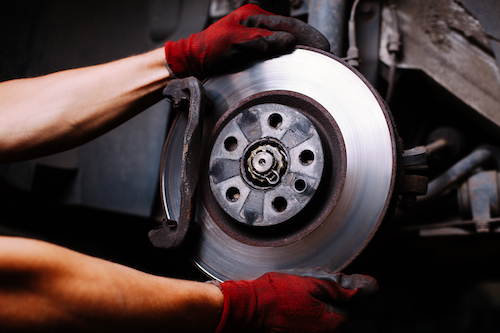

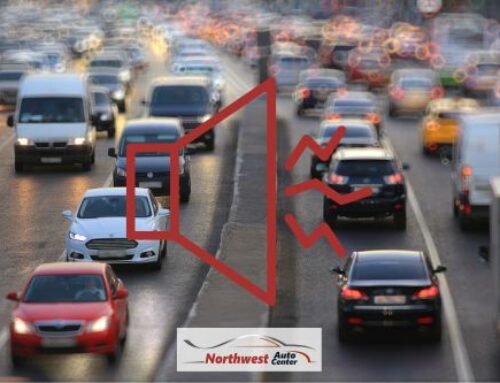
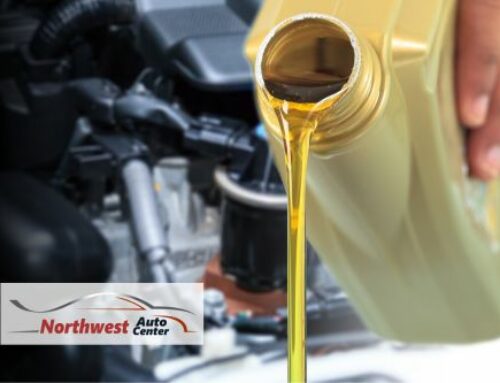
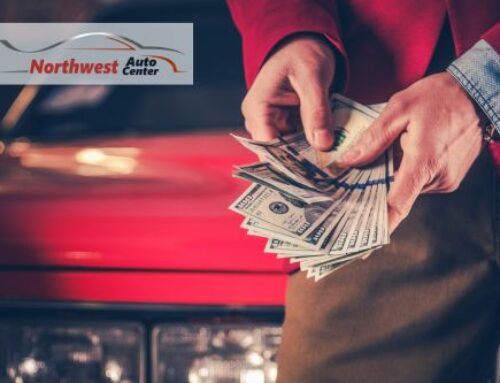
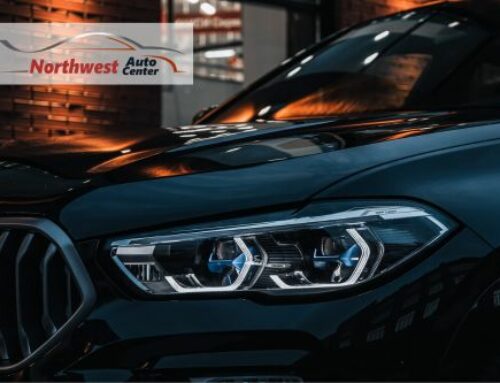
[…] burning you smell? It’s coming from the friction of a slipping clutch. Like your brakes, the clutch has a pad that helps create friction and grip to lock the gears into place. When this […]
[…] braking. But, this excess of braking causes heat from the friction of the brake pads and rotors, increasing wear and risk of […]
[…] brakes need some love after a long winter. Even if they are not showing classic signs of wear, have a technician take a peek at your next routine […]
[…] Braking system: foot and parking brakes. […]
[…] Always have a professional look at your brakes. Your car’s brakes are so crucial to the safety of you and those around you. If you notice a squeaking noise when applying the brakes or any other odd noise, take your car in. They may need some work or replacing. […]